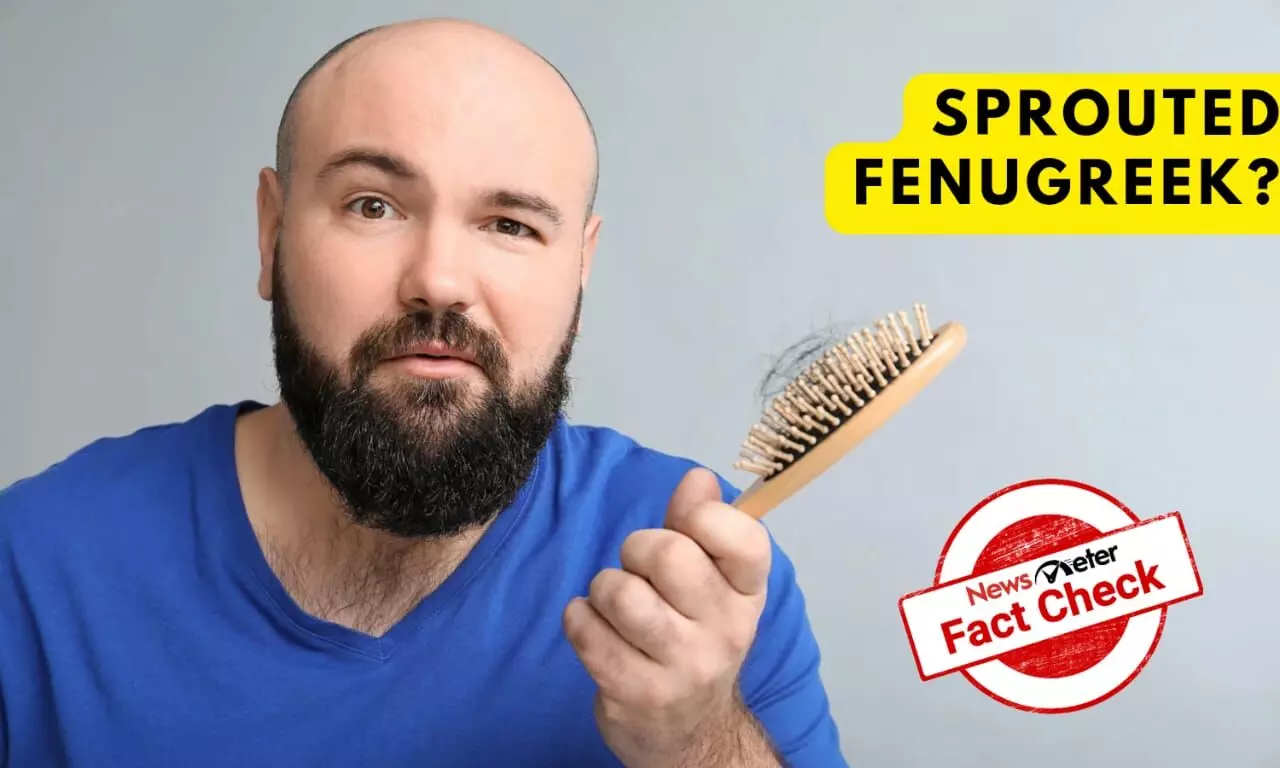Fact Check: Can consuming sprouted fenugreek help regenerate lost hair?
There is no conclusive scientific evidence to back the claim.
By Sunanda Naik
Claim:This video claims that consuming sprouted fenugreek reclaims lost hair and promotes hair growth.
Fact:There is no conclusive scientific evidence to back the claim.
Hyderabad: Social media users are sharing a video that claims sprouted fenugreek is a powerful solution for baldness and it can purportedly help in regrowing lost hair.
Fenugreek has a longstanding tradition in India as a natural supplement for promoting hair growth. It is quite common for such videos to circulate on social media, often making bold claims about natural remedies for various health and beauty concerns. Just like the viral video, which claims that you can eliminate baldness by consuming sprouted fenugreek. However, it's crucial to approach such posts with caution and skepticism, especially when it comes to significant claims like regaining lost hair.
Fact Check
NewsMeter found the claim to be misleading as there is no conclusive scientific evidence to back the claim.
According to Dr. N Bhavana, consultant Dermatologist and trichologist at Care Hospitals, "Fenugreek has anti-inflammatory and antioxidant properties which can help in the early stages of balding. But Fenugreek alone would not suffice in reclaiming lost hair. And it will not help in advanced stages of baldness."
Dr. Bhavana clarifies, “No ingredients used for hair can show effect in a short time. It will at least take a month or 45 days for the results to appear."
This emphasizes that any treatment, including fenugreek or other ingredients, requires consistent use over several weeks to notice potential improvements in hair health or growth. The initial stages of balding often exhibit signs of inflammation, which Dr. Bhavana suggests can be inhibited by fenugreek. However, it's crucial to note that individual results may vary, and relying solely on fenugreek without considering other factors and treatments may not yield substantial improvements in hair growth.
According to Healthline, fenugreek's unique plant compounds, including flavonoids and saponins, are thought to stimulate hair growth due to their anti-inflammatory and antifungal properties. Though research is limited, a small study suggests potential validity to these claims. The idea that consuming sprouted fenugreek alone can effectively restore lost hair is likely misleading.
Hair loss is a complex issue influenced by multiple factors such as genetics, hormonal balance, stress, nutritional deficiencies, and overall health. According to Medical News Today, “Androgenetic alopecia – which is more commonly known as male pattern baldness and female pattern baldness’.
Pattern baldness is caused by the miniaturization of hair follicles due to genetic sensitivity to dihydrotestosterone (DHT), an androgen hormone converted from testosterone by follicle oil gland enzymes. DHT binds to follicle receptors, shrinking them progressively, resulting in thinner, shorter-lived hairs until follicles cease hair production, leading to baldness.
As of date, there are two FDA-approved drugs for treating hair loss that are Minoxidil and Finasteride other than that you may opt for surgical treatments as prescribed. Doctors believe that most hair loss treatments only manage hair loss rather than being a permanent solution. The research to find a permanent cure for hair loss is ongoing.
Hence, there's limited scientific research specifically on fenugreek sprouts and their effects on hair growth. Be cautious of information shared on social media without credible sources or scientific backing.